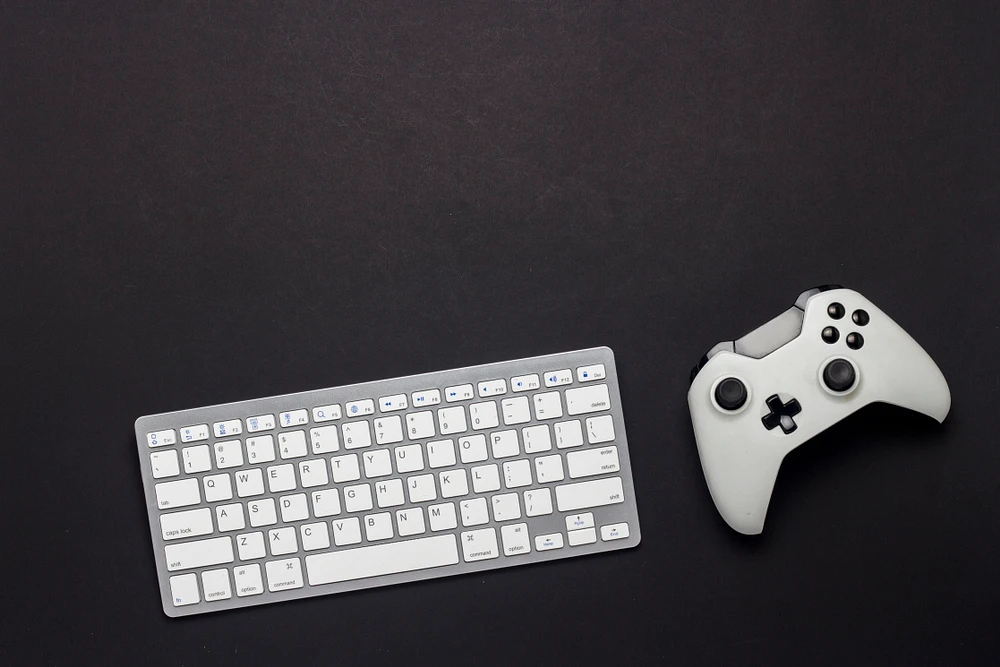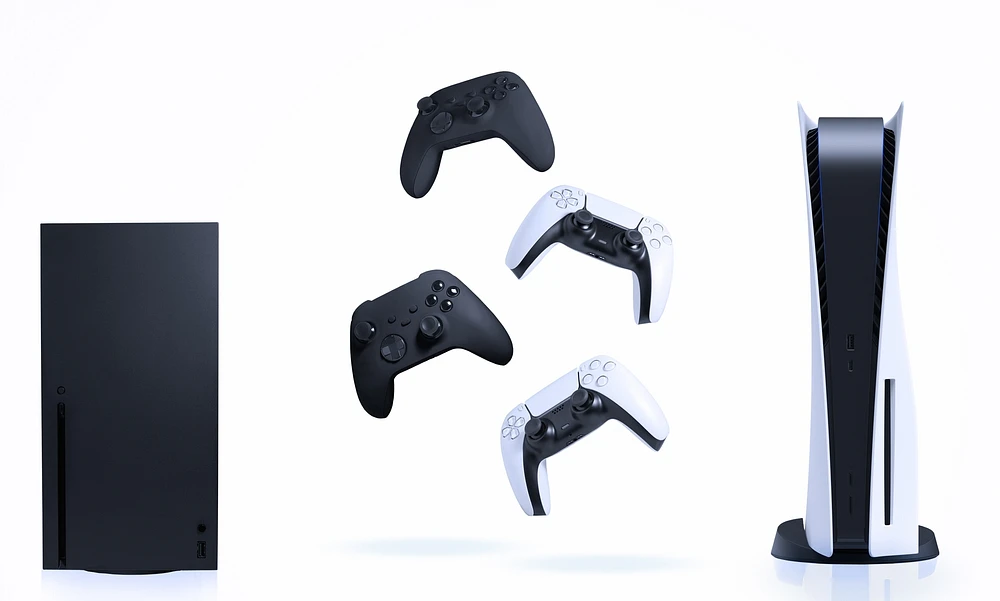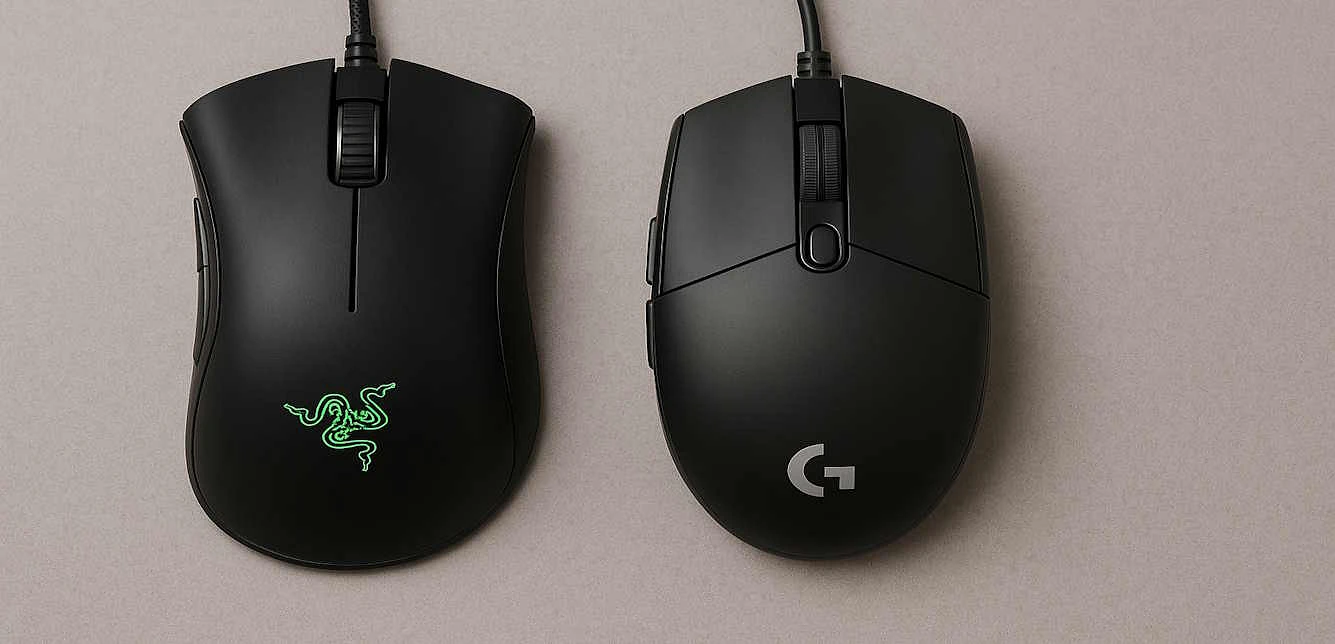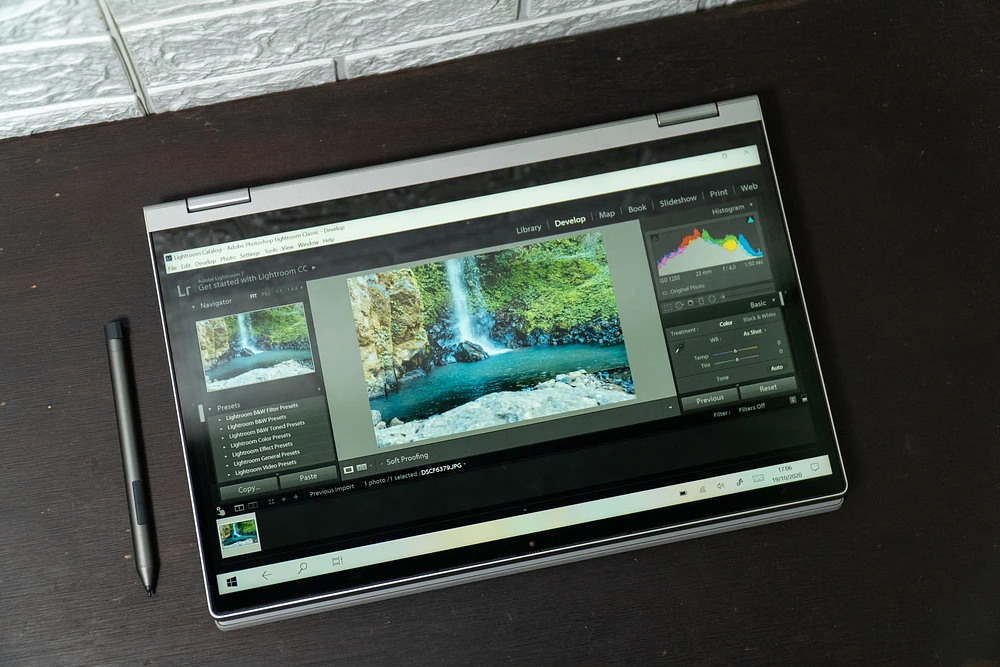TL;DR: Choosing between a console and PC
-
Cost 💰: Consoles cost a fixed $300 to $500. PCs start around $500 for basic models but can go over $1,500 for top-tier ones.
-
Performance ⚙️: PCs let you upgrade endlessly for more power. Consoles give you stable, optimized performance out of the box.
-
Flexibility 🧩: PCs win at doing many things at once and using game mods. Consoles keep things straightforward and simple.
-
Exclusives 🎮: Both platforms have games you can't play anywhere else. This could sway your choice.
Introduction: The Great Gaming Debate
Choosing between a Gaming PC vs. Console is a classic gamer question. Do you pick a sleek console or assemble your own powerful machine?
Both have come a long way. Today's consoles handle 4K gaming and ray tracing well. PCs keep advancing boundaries with better graphics cards and faster SSDs.
Options like Xbox Game Pass Ultimate or NVIDIA GeForce Now add cloud gaming into the mix. Still, owning physical hardware offers serious players the top experience.
Your decision impacts gaming for years. Consider budget, desired performance level, and preferred game types.
Upfront Costs: Breaking Down Your Initial Investment
Console Pricing: Simplicity at a Premium
Console manufacturers make hardware decisions simple. You pick from a few options and know exactly what you're getting.
Current console pricing includes:
-
PlayStation 5: $499 (standard), $399 (digital edition)
-
Xbox Series X: $499 (premium model)
-
Xbox Series S: $299 (budget-friendly option)
-
Nintendo Switch 2: $449
Bundle deals often include extra controllers or popular games. These packages can save money compared to buying items separately. Holiday sales frequently drop console prices by $50-100.
PC Building: Budget to Beast-Mode Tiers
PC building offers flexibility but requires research. Here's how different budgets translate to performance:
Entry-Level Systems ($500-600):
-
Handle 1080p gaming at medium settings
-
AMD Ryzen 5 or Intel Core i5 processors
-
GTX 1660 or RTX 3060 graphics cards
-
16GB RAM and 500GB SSD storage
Mid-Range Builds ($900-1,200):
-
Target 1440p gaming with high settings
-
AMD Ryzen 5 or Intel Core i7 processors
-
RTX 4060 or RTX 4070 graphics cards
-
32GB RAM and 1TB NVMe SSD
High-End Systems ($1,500+):
-
Push 4K gaming at maximum settings
-
AMD Ryzen 7/9 or Intel Core i7/i9 processors
-
RTX 4080 or RTX 4090 graphics cards
-
32GB+ RAM and multiple NVMe drives
Pre-built systems cost more but eliminate assembly concerns. Companies like Origin PC and iBUYPOWER offer configured systems with warranties.
Hidden Expenses (Controllers, Peripherals, Storage)
Console gaming requires additional purchases:
-
4K TVs: $400-1,000 for enhanced performance
-
Extra controllers: $60-70 each for multiplayer
-
External storage: $100-200 for meaningful capacity
-
Gaming headsets: $50-300 depending on quality
PC gaming needs different peripherals:
-
Gaming monitors: $150-500 (budget to high-refresh)
-
Mechanical keyboards: $50-200
-
Gaming mice: $30-150
-
Quality headsets: $50-300 for premium audio
Long-Term Value: Games, Subscriptions, and Upgrades
Game Pricing and Sales
PC gaming traditionally offers better game prices. Steam sales regularly discount titles 50-90%. Epic Games Store provides weekly free games. Key reseller sites offer additional savings.
Console digital stores have improved their sales. PlayStation Store and Xbox Marketplace now compete more aggressively on pricing. Physical console games can be resold, providing value recovery.
New releases typically cost $60-70 across all platforms. However, PC versions often drop in price faster than console equivalents.
Subscription Services Face-Off
Xbox Game Pass Ultimate ($16.99/month):
-
Hundreds of games included
-
Day-one releases from Microsoft studios
-
Xbox Live Gold membership
-
Cloud gaming access across devices
PlayStation Plus (three-tier system):
-
Essential ($9.99): Online play and monthly games
-
Extra ($14.99): Adds extensive game catalog
-
Premium ($17.99): Includes classic games and streaming
PC Game Pass ($9.99/month):
-
Similar game library to Ultimate
-
No console access required
-
Steam doesn't require subscriptions for online play
The Upgrade Treadmill: PC vs. Console Generations
Console generations last 6-8 years. Mid-generation refreshes like PS5 Pro extend hardware life. You know exactly when replacement becomes necessary.
PC upgrade timeline varies by component:
-
Graphics cards: Replacement every 3-5 years for high-end gaming
-
CPUs: Last longer, typically 5-7 years with good performance
-
RAM and storage: Upgrade as needed for specific requirements
-
Motherboards: Usually upgraded with CPU changes
PC component prices fluctuate dramatically. Graphics card shortages can inflate prices 50-100% above MSRP. Consoles maintain stable pricing throughout their lifespan.
Performance and Visuals: Frame Rates, Resolution, and Beyond
The 4K/60FPS Benchmark
Modern consoles target 4K gaming at 60 frames per second. However, many games offer "performance modes" that reduce resolution for higher frame rates. Quality modes prioritize visual fidelity over smoothness.
PC hardware scales infinitely. Entry-level systems handle 1080p/60fps easily. High-end systems push 4K/120fps+ with proper monitors. You control the performance versus quality balance.
Console optimization provides consistent experiences. Developers optimize specifically for console hardware. This results in impressive performance from relatively modest specifications.
Ray Tracing and Load Times
Both platforms now support ray tracing technology. Consoles implement ray tracing selectively due to performance constraints. PCs with powerful graphics cards can enable comprehensive ray tracing effects.
SSD storage revolutionized load times across platforms. Console SSDs are incredibly fast, virtually eliminating loading screens. PC NVMe drives match or exceed console performance.
Consoles benefit from unified memory architecture. This allows more efficient resource usage compared to traditional PC memory hierarchies.
The Modding Advantage: Where PC Dominates
PC gaming's modding community creates incredible content:
-
Skyrim: Complete visual overhauls and new questlines
-
Fallout series: New worlds and gameplay mechanics
-
Grand Theft Auto: Custom maps and vehicle packs
-
Minecraft: Unlimited texture packs and gameplay mods
Console modding exists but remains limited. PlayStation and Xbox allow some mods for specific games. However, restrictions prevent the expansive modifications possible on PC.
Emulation represents another PC advantage. Powerful systems can run classic console games with enhanced graphics and features. This provides access to decades of gaming history.
Game Libraries and Exclusives: Where to Play What
Console-Exclusive Powerhouses
PlayStation 5 exclusives define the platform:
-
God of War Ragnarök
-
Spider-Man 2 and Miles Morales
-
Horizon Forbidden West
-
The Last of Us Part II
-
Ghost of Tsushima Director's Cut
Xbox Series X focuses on Game Pass value:
-
Halo Infinite
-
Forza Horizon 5 and Motorsport
-
Gears 5
-
Microsoft Flight Simulator
-
Most exclusives also release on PC
Nintendo Switch 2 offers unique experiences:
-
Donkey Kong Bananza
-
Mario Kart World
-
Metroid Prime 4
-
Kirby Air Riders
-
The Duskbloods
PC's Strengths: Strategy, Indies, and Backward Compatibility
PC gaming excels in specific areas:
-
Strategy games: Age of Empires IV, Civilization VI, Total War series
-
MMORPGs: World of Warcraft, Final Fantasy XIV, Guild Wars 2
-
Indie catalog: Steam's vast library of innovative titles
-
Early access: Experience games during development
-
Backward compatibility: Decades of gaming history accessible
Steam's indie game catalog dwarfs console alternatives. Innovative titles often debut on PC before console ports. Early access programs let you experience games during development.
User Experience: Convenience vs. Customization
Plug-and-Play vs. Setup Friction
Console gaming emphasizes simplicity:
-
Unbox, connect to TV, start playing
-
Automatic updates in rest mode
-
Seamless game installations
-
Gaming-focused user interface
PC gaming requires more involvement:
-
Driver updates and launcher installations
-
Compatibility troubleshooting occasionally needed
-
Deeper customization options available
-
Multitasking capabilities beyond gaming
Controller vs. Keyboard/Mouse (and Hybrid Options)
Controller advantages:
-
Comfortable couch gaming experiences
-
Haptic feedback and adaptive triggers
-
Natural split-screen multiplayer
-
Ergonomic design for extended sessions
Keyboard/mouse benefits:
-
Precise aiming for competitive gaming
-
Quick inputs and customizable bindings
-
Superior for strategy and MMO games
-
Professional esports standard
Cross-platform play increasingly supports both input methods. Many games detect your input device and adjust accordingly. This flexibility benefits both platforms.
Living Room vs. Desk: Design and Portability
Consoles integrate seamlessly into entertainment centers. Their compact designs and quiet operation suit living room environments. Local multiplayer gaming works naturally on large TVs.
Gaming PCs traditionally require dedicated desk space. However, small form-factor builds and streaming solutions expand placement options. Steam Link allows playing PC games throughout your home.
Nintendo Switch 2 offers unique portability. Handheld mode enables gaming anywhere. This flexibility remains unmatched by other platforms.
The Verdict: How to Decide
Choose a Console If…
-
Simplicity appeals most: Eliminate technical complexity and guarantee compatibility
-
Exclusive games matter: PlayStation, Xbox, and Nintendo offer unique experiences
-
Couch gaming fits your lifestyle: Controllers and large TVs create comfort
-
Budget predictability important: No surprise upgrade costs throughout generation
-
Local multiplayer priority: Split-screen gaming works effortlessly
Choose a PC If…
-
Maximum performance desired: High-end PCs exceed console capabilities significantly
-
Modding interests you: Community-created content extends game lifespans
-
Multitasking needed: Handle gaming, streaming, productivity simultaneously
-
Competitive gaming focus: Keyboard/mouse precision and high refresh rates
-
Customization valued: Control every aspect of your gaming experience
Frequently Asked Questions (FAQ)
Is a gaming PC more expensive than a console long-term?
Gaming PC cost varies dramatically based on upgrade frequency and component choices. Budget-conscious PC gamers can match console expenses by upgrading selectively. Enthusiasts typically spend more for cutting-edge performance.
Console gaming includes subscription fees for online play. These costs accumulate over 6-7 year console generations. PC gaming avoids mandatory online subscriptions but may involve more frequent hardware updates.
Can I use a console controller on a PC?
Yes, modern PCs support all major controllers natively. Xbox controllers work seamlessly with Windows. PlayStation controllers require additional software but function perfectly. Steam's controller support covers most gaming scenarios.
Many PC games detect controllers automatically and adjust their interfaces accordingly. This provides console-like experiences on PC when desired.
Do consoles support keyboard/mouse gaming?
You can use a keyboard and mouse on both PlayStation and Xbox, but only for some games. Titles like Call of Duty or Fortnite let you do this. It's hit or miss, though. Support really depends on each game's developers. Most console games expect you to use a controller, so keyboard and mouse choices are still limited. PCs are much more flexible here.
Are consoles truly "plug-and-play" in 2025?
Modern consoles require significant setup time. System updates, game installations, and account configurations delay initial gaming. However, ongoing maintenance remains minimal compared to PC gaming.
Day-one patches and large game files mean immediate gaming isn't always possible. Internet connections are essentially mandatory for optimal console experiences.









